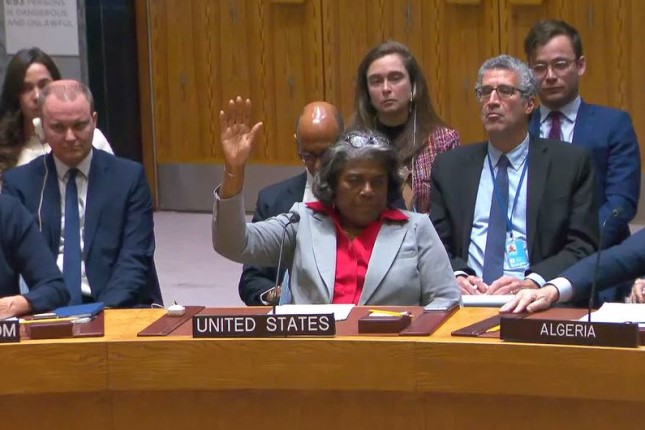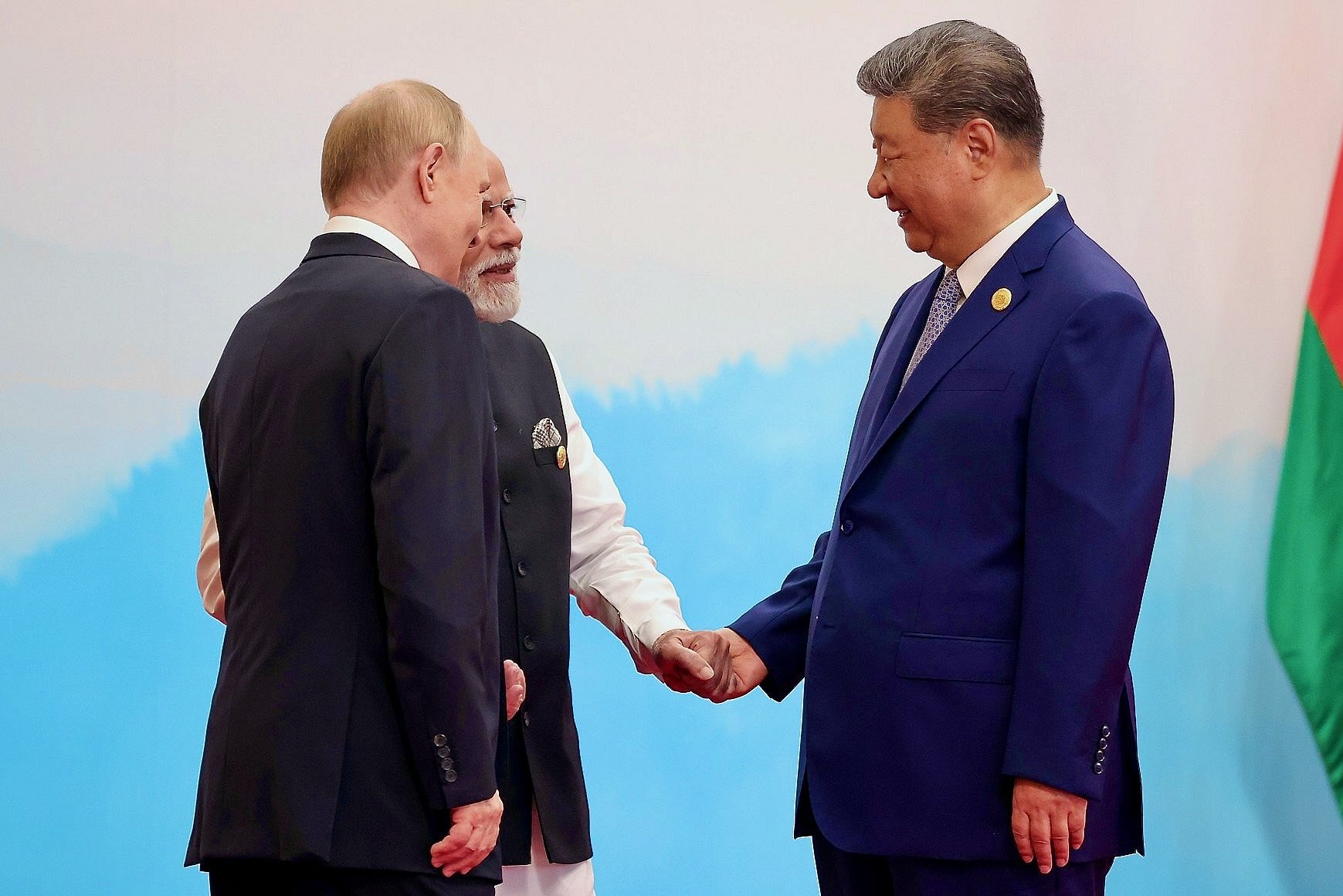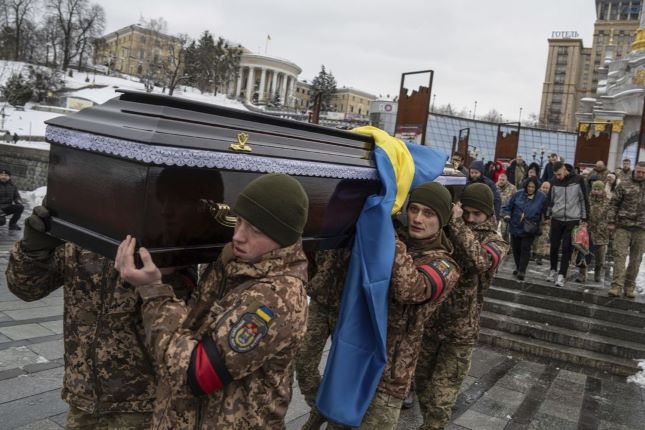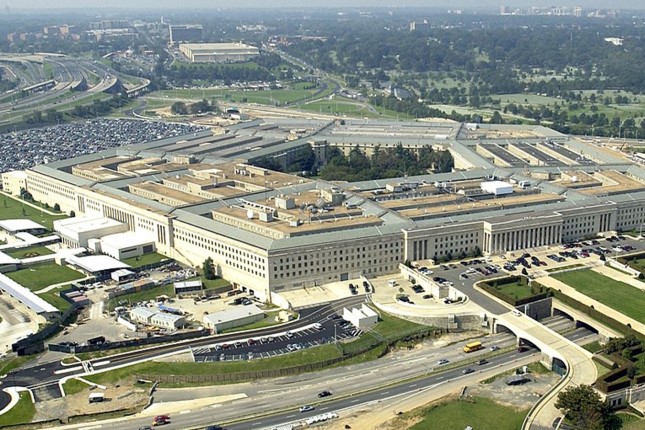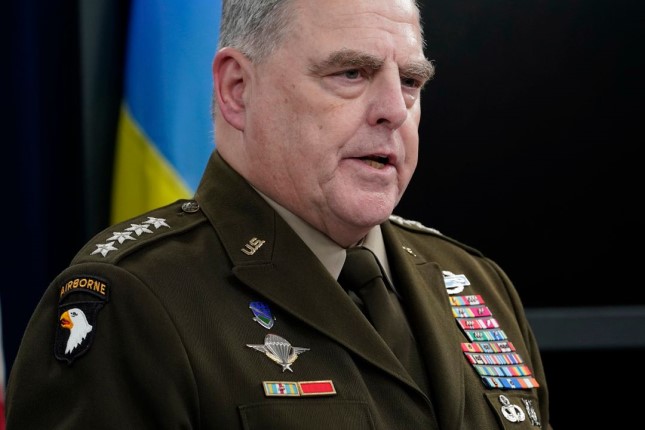Passage of the resolution was made possible by the U.S. decision to reign in its veto and, instead, abstain from the vote.
In her explanation of the American vote after the resolution passed, U.S. Ambassador to the UN Linda Thomas-Greenfield shocked the council by declaring the resolution “nonbinding.” A nonbinding Security Council resolution is a contradiction, since a Security Council resolution, by definition, is binding. That is the power of the Security Council and the key difference between resolutions passed in the Security Council and in the General Assembly. Article 25 of the United Nations Charter says, “The Members of the United Nations agree to accept and carry out the decisions of the Security Council in accordance with the present Charter.”
Her comment was not a spontaneous, unprepared slip. It was scripted. In a March 25 press briefing following the vote and Thomas-Greenfield’s claim, White House National Security Communications Advisor John Kirby called the resolution “nonbinding” no less than four times. “It’s a nonbinding resolution,” he said. “So, there’s no impact at all on Israel and Israel’s ability to continue to go after Hamas.” At a State Department press briefing the same day, department spokesperson Matt Miller called the resolution “nonbinding” three times.
The U.S. acted as a rogue state and defied international law. As explained by UN deputy spokesperson Farhan Haq, “All the resolutions of the Security Council are international law. They are as binding as international laws.” America’s allies on the Security Council agreed: the British envoy to the UN said, “we expect all Council resolutions to be implemented. This one is not any different.”
The crucial point is not whether you agree with the United States’ position on the war in Gaza. It is that the United States acts as a country that is bound by the Security Council and international law when it benefits, and is not bound when it does not.
But the United States went beyond merely declaring the resolution nonbinding. It has disregarded it. In the hours following the Security Council resolution, the Joe Biden administration authorized the transfer of 1,800 MK84 2,000 pound bombs to Israel that had been approved years ago.
2,000 pound bombs, which are “capable of leveling city blocks and leaving craters in the earth 40 feet across and larger, are almost never used anymore by Western militaries in densely populated locations due to the risk of civilian casualties,” The Washington Post reports.
The crucial point, once again, is not whether you think the United States should be supporting Israel. The U.S. has reportedly told Israel that it can “still achieve its objectives” without the huge 2,000 pound bombs. The point is the apparent U.S. disregard for the decisions of the Security Council and the International Court of Justice.
In November, The New York Times reported that, while fully supporting Israel’s actions in Gaza, Secretary of State Antony Blinken had talked to Israeli Prime Minister Benjamin Netanyahu about “concrete steps” Israel could take to achieve its objectives while “minimiz[ing] civilian deaths.” One of those steps was “us[ing] smaller bombs.” The “smaller bombs,” U.S. military officials say, “are much better suited to the dense urban environments of Gaza.”
The U.S. is defying the spirit of the Security Council and International Court of Justice decisions by transferring the very weapons it had advised against using because of the risk of civilian casualties.
That same American disregard for life and law has been shown in Ukraine where the United States has supplied cluster bombs, which are “globally banned because they cause both immediate and long-term civilian harm, leaving behind unexploded remnants that act as landmines for years.” 112 countries have ratified the 2008 Convention on Cluster Munitions. Twelve more have signed it. Despite the White House saying that, if reports that Russia is using cluster bombs are true, “it would potentially be a war crime,” in July 2023, the U.S. began supplying cluster bombs to Ukraine.
The United States, like the United Kingdom, has also said they will send “ armor-piercing munitions containing depleted uranium to Ukraine.”
The U.S. and its Western partners have encouraged the continuing death of Ukrainians in pursuit of their own foreign policy objectives. They have discouraged efforts at a diplomatic settlement in favor of the continuation of a military one. David Arakhamiya, who led Ukraine’s negotiating team in Istanbul, where a draft agreement had been produced and peace was at least possible, has revealed that “We were advised by Western allies not to agree to ephemeral security guarantees.” He also confirms that “when we returned from Istanbul, Boris Johnson came to Kyiv and said that we would not sign anything with them at all, and let’s just fight.” On April 9, 2022, then UK Prime Minister Boris Johnson hurried to Kiev to tell Volodymyr Zelensky that Vladimir Putin “should be pressured, not negotiated with” and that, even if Ukraine was ready to sign some agreements with Russia, “the West was not.”
Investigative journalist Seymour Hersh reports that an American official told him that when “we were on the verge of a reasonable negotiation several months ago,” the United States threatened Zelensky, “No negotiations or settlement or we won’t support your government with the $45 billion in non-military funds.”
The U.S. official, “who is kept abreast of ongoing talks between leaders of the two armies at war,” says that “the Biden administration, working with Zelensky, continue to rebuff any chances of significant progress in peace talks.”
Instead of peace talks, the United States pressed Ukraine to launch a counteroffensive when, privately, “Western military officials knew Kyiv didn’t have all the training or weapons – from shells to warplanes – that it needed to dislodge Russian forces.” The U.S. knew Ukrainian losses would be huge “but envisioned Kyiv accepting the casualties as the cost of piercing through Russia’s main defensive line.”
Once again, the U.S. demonstrated a shocking disregard for life.
The latest indication that a new military aid package could clear Congress in the near future will likely do little to alter the outcome of the war: larger packages when Ukraine was better positioned didn’t. It will likely only prolong the road to that outcome, continuing the wounding and killing of Ukrainians in pursuit of American goals.
Source: AntiWar.
